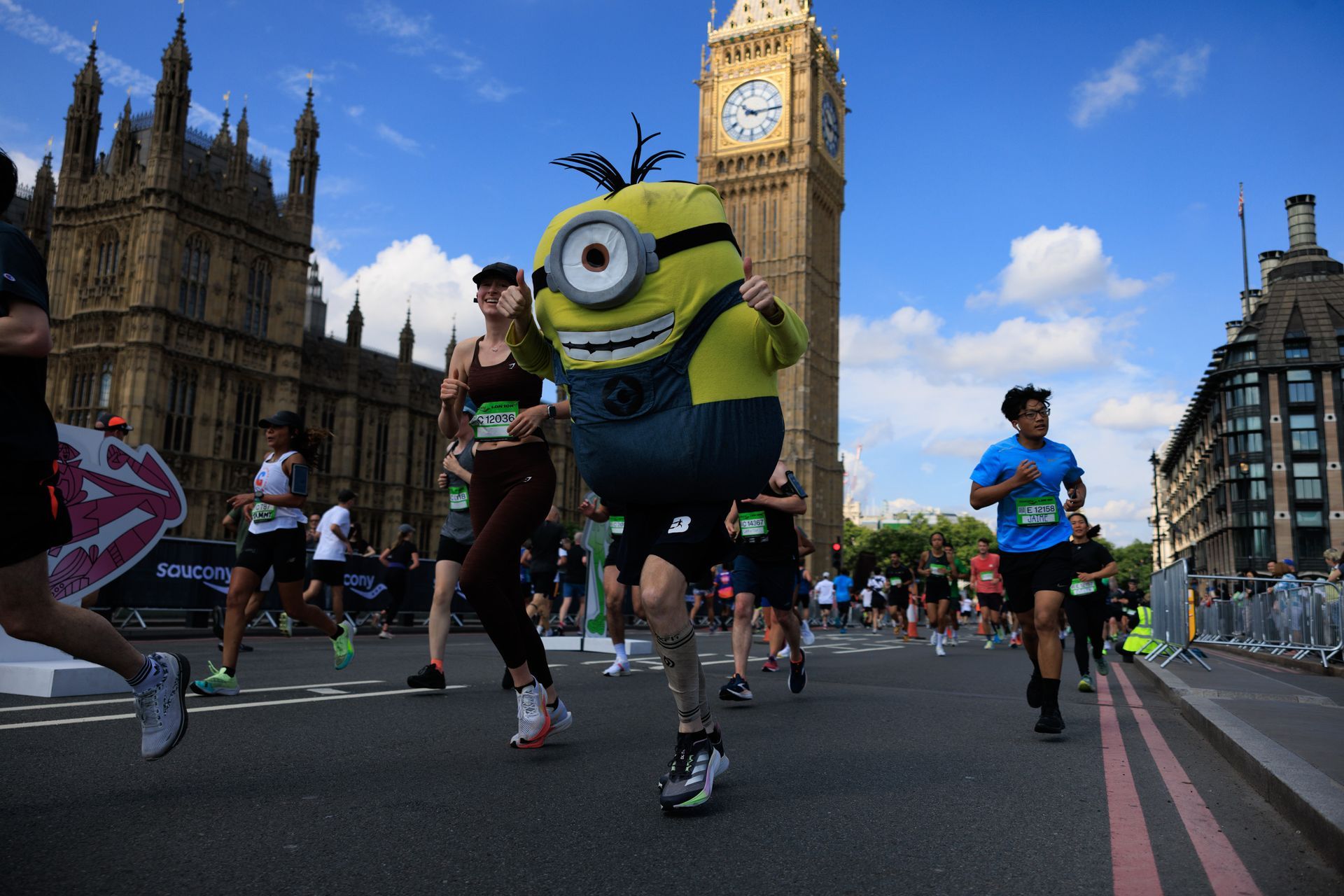Blog Layout
Why the FIA can’t afford to silence F1 drivers
Nick Rewcastle, managing director of New Reach PR, outlines in SportsPro
how the FIA’s attempts to ban drivers from making political statements will have a devastating impact for the sport.
After considerable progress in very recent years, athletes have finally been given platforms to have a voice, discuss vital social and humanitarian issues and raise awareness for causes close to them.
After decades of resistance, and finally breakthrough, it would be disastrous for the walls to be rebuilt and athletes to be silenced.
Could the International Automobile Federation (FIA) be waving the red flag on its own sport, following in the footsteps on Fifa, soccer’s governing body, during the recent World Cup?
The FIA, the governing body for Formula One, is due to issue further guidelines to clarify the meaning of its new rule banning drivers from making political statements. In recent weeks, we have seen the likes of Lando Norris, George Russell and Sir Lewis Hamilton speak out against the FIA’s rule.
Seven-time world champion Hamilton is arguably one of the highest-profile and most successful sporting names to regularly drive purpose-led conversation across topics ranging from human rights to lifestyle choices. The British driver’s Instagram bio doesn’t state his success on the track, instead reading: ‘🌱 based. Living my purpose. Empowering those who may not realise their greatness. Equal rights for all. Love is love.’
The impact that Hamilton has had alone will not only have supported millions of people in hearing such a high-profile name address issues that resonate with them, but it also will have helped increase the commercial value of the sport through purpose-led brand advocacy. The power of the athlete voice is second to none, delivering emotional and commercial value across the world.
Some racing commentators believe that Hamilton’s activism has been the catalyst for the FIA’s decision, which was implemented earlier this year. The rule forbids ‘the general making and display of political, religious and personal statements or comments in violation of the general principle of neutrality promoted by the FIA under its statutes, unless previously approved in writing.’
As expected, human rights groups are up in arms, and have been over recent weeks, but only now are we hearing directly from those directly impacted: the drivers.
The FIA will no doubt have its reasons, likely citing commercial constraints and the stability of the sport. But the political landscape of the FIA, with the controversial Mohammed Ben Sulayem as its president, raises alarm bells. Whilst Ben Sulayem earlier this month announced that he would be taking a step back from direct involvement in Formula One, his tenure in the role has so far damaged the integrity of the sport.
His string of controversial decisions are accentuated by the lack of support from the Formula One itself, which is committed to providing a platform to raise awareness of issues around diversity and human rights. Formula One chief executive Stefano Domenicali has come out to say that the series would “never gag drivers”.
Despite the two bodies sharing the responsibility of running the hugely popular and commercial sport, unity appears to be some way off.
This breakdown has the power to devastate the sport. Without free speech for drivers, the sport will lose its talent who will perhaps seek new opportunities elsewhere in motorsport, which is seeing substantial growth as a whole. Without advocacy and purpose, many fans, groups and ultimately commercial partners will drop off. It’s not a world where voices can be silenced anymore – Fifa saw that last year, and the FIA is heading down a potentially destructive route.
What is reassuring to see is the harmony amongst drivers, teams and Formula One, who now seek answers from the FIA into what the “confusing” ruling actually means for them.

by Nicholas Rewcastle
•
8 April 2025
9 April marks four years of New Reach. It’s been a remarkable journey so far, with much more to come. Our MD and Founder, Nick Rewcastle, reflects on the milestone. If you said to me four years ago, that I would be writing this post, I may not have believed you. When we set out, we had a clear mission; to make a difference in the development of sports, talent, and communities through ethical, impactful, and strategic communications. We promised to never compromise trust, morals or rules to profit. I can proudly say that we’ve stuck by our principles and delivered some amazing results along the way. What began as a small idea has grown into a team of dedicated PR, social media and video professionals, united by a shared set of values. We’ve had the honour of collaborating with a diverse range of clients, playing a role in telling the stories that matter the most. There’s too many highlights and amazing projects to name them all, and we don’t want to miss anyone out. Just looking at some of the sports we have worked with, the variety is incredible; football, rugby, cricket, squash, bowls, climbing, rowing, table tennis, triathlon, running, basketball, gymnastics, sailing and even chess. The past two years has seen us really drive growth across our digital offerings, growing our expertise across social media management and video, aligned with our ongoing PR work. None of this would be possible without the incredible people I get to work with. Our team is small but mighty, and every single person brings passion, skill, and care to the table. Together, we've built something that feels authentic — something I’m genuinely proud of. As we celebrate this milestone, we also look forward to the next four years. We remain committed to our mission and are extremely excited about the future. We want to further grow the team, work with new clients, experiencing new sports and sectors. We extend our heartfelt thanks to our clients, partners, and the communities we've worked with over the past four years. Your trust and collaboration have been vital to our journey. Here's to continued growth, meaningful impact, and many more milestones ahead.

9 January 2025
Will Lloyd, Communications Executive One of the more valuable traits in social media management is adaptability. Rarely does everything work out exactly according to plan, so the ability to step back and consider why your plan didn't work, adjusting accordingly, is often the difference between a successful campaign that resonates with your audience and one that goes largely unnoticed. When creating content plans for a new client or platform, we are often making an informed guess, whilst trying to demonstrate what we can do ‘in theory’. You’ve done the research and crafted a strategy that seems promising, but until the posts go live, there’s no guarantee of how things will play out. This is when we start to look at tweaking posting times, being more graphic/video/image led or even scrapping certain aspects completely. That’s because social media doesn’t work the same way for any two accounts, and what performs well for one client or audience might struggle elsewhere. While it’s frustrating, this is what makes us good at our job - the ability to adapt to the needs of the account. Social media rewards those who can step back, assess what isn’t working, and try something new. It can feel messy and unpredictable at times, but like any creative industry, trial and error is how you uncover what really works. Lindsey Buckingham and Stevie Nicks’ original project struggled horribly before they *adapted* and joined Fleetwood Mac; now look at them - or at least their music… It’s worth remembering that content plans aren’t set in stone. They’re a starting point and a vague concept, not a rigid programme. It might feel wrong to abandon a plan that you worked hard to come up with, but the best results often come when you allow yourself to be more creative and impulsive with your content. If a series doesn’t gain the engagement you hoped for, you haven’t wasted your time. Treat them as experiments, and each time one doesn’t work, check it off the list and move on to the next idea. Eventually, you will find the trends and nuances that get people engaged - put yourself in the shoes of your audience, what would you like to see in your feed? It’s all part of the process, and more often than not, your ability to adapt will be rewarded. Clients and audiences will appreciate content that feels fresh, creative and tailored to them.

by Nicholas Rewcastle
•
19 December 2024
It’s been another outstanding year for New Reach. It’s been a busy one for the team, and we want to take a moment to thank everyone we have worked with in the past year for placing their faith in New Reach as we continue our expansion. 2025 looks set to be another great year, as we continue to grow across all three of our divisions – PR | Social | Video. Here’s a breakdown of 2024: January Captured social and video content at the World Boxing Cup in Sheffield Started working with Greenhouse Sports Announced Hampshire’s ground naming rights partnership - Utilita Bowl February Started working with Active Sussex March Attended NJIRC, capturing video content April Headed to Madrid to lead the UK media for the Laureus World Sports Awards Launched LYR’s newest programme, Active Row Bristol Managed media for the Rugby Black List Awards May Led the PR at the Hackney Half marathon Sam promoted to Senior Comms Executive June Led the PR at the Blenheim Palace Triathlon Sam got engaged! July Led the PR at the Saucony London 10k Headed to Leeds to film with GB Climbing stars ahead of the Olympics Will promoted to Comms Executive August Toby Roberts won Olympic gold – a huge moment for GB Climbing September Managed the media activity for Utilita Bowl’s historic solar switch on Led PR for Greenhouse Sports’ partnership launch event with VitaCoco and Zharnel Hughes October Led the PR for Global Chess League in London Media management at Oxford Half Supported World Rugby for RWC25 and WXV Company directors, Nick and Hannah, welcomed baby #3 November Headed back to Sheffield for another World Boxing Cup December Started work on the 2025 Laureus World Sports Awards Helped England Squash with celebrating their annual Awards winners Partnered with performance marketing firm, Double Media See you in 2025!

by Nicholas Rewcastle
•
11 December 2024
We’ve proudly partnered with performance marketing agency, Double Media, to provide a wider offering to our clients. Double Media specialises in all things paid advertising across channels such as Meta and Google and lead nurturing systems such as text automations and email automations. The partnership aims to combine New Reach’s integrated communications offering and skillsets with Double Media’s performance marketing services. You can find out more about Double Media at: www.double-media.com Collaboration has always been at the heart of New Reach, with MD and Founder Nick Rewcastle creating strategic partnerships with varying organisations and talented individuals over the years. New Reach Managing Director, Nick Rewcastle, said: “It’s a very exciting partnership for us, working with the guys at Double Media to offer something fresh and different. We’ve also been very impressed with their progress and development over the last few years. “While we would love to say that we can do everything ourselves, we can’t, which is why we love combining with brilliant partners. Ryan and I met through a mutual connection and got on like a house on fire, so I knew this was the start of something great. “What is also so refreshing is that Ryan and I agreed that we are both local business owners, doing great things, that can help each other out – because we want to. There’s no formal relationship or expectations, simply the ability to collaborate when we can. “Simply put, Double Media have skills that we don’t, but know that some of our clients would love. Likewise, we can offer our PR services to Ryan’s clients – all with the peace of mind knowing that we vouch for each other.”

by Nicholas Rewcastle
•
9 December 2024
Last week, Sport England released its annual Active Lives Children and Young People survey – a fundamental date in the diary for all operating in this sector. Yet again, concerning data has highlighted the sustained battle to get young people active. 52% of children and young people are doing less than the recommended amount of activity a day. Boys are still more active than girls with affluence and race a key factor. The worrying consistency of these annual reports is the rise in health inequalities. Those from a white or mixed background are more likely to be active than Black or Asian children, a trend that has continued over the years, worsening since the COVID-19 pandemic. The pandemic exacerbated the inequalities - with least affluent, Asian people, disabled people, and people with long-term health conditions all less likely to be active than other groups. But surely, we expected more progress by now? A small glimmer of hope, however, is that the general situation generally isn’t getting worse, with overall activity levels around the same as the previous year, but we’re still not back to pre-pandemic levels. We can’t celebrate ‘not getting worse’, however, and the inequality crisis remains alarming. There are significant learnings this year around motivations to being active, finding that those with three or more positive attitudes towards physical activity were more active. However, among the disparities are younger children being less active, with many having a knock-on effect from the pandemic. Sport England chief executive, Tim Hollingsworth, said: “For the pandemic generation, COVID-19 has had a fundamental impact. The data shows that, for the children whose impressionable early years were defined by lockdowns and lack of activities, attitudes towards sport and physical activity are distinctly negative. “The challenge is huge - with issues such as rising obesity levels and rising cost-of-living damaging children’s health prospects too – but so is the opportunity. An active generation is critical to the government’s missions because active children turn into active adults, helping our NHS and improving the long-term health and wealth of our country. “Sport England will continue to play its part in solving these challenges, but we cannot do it alone. We look forward to working with the government and everyone who cares about future generations to drive the changes we need.” The full report is available here .

by Nicholas Rewcastle
•
4 March 2024
If you are currently studying in a PR / journalism or comms-related course, or have recently completed your studies, then we would be delighted to discuss a work experience opportunity. We're passionate about providing opportunity to those looking to kick-start their careers in this world. Ultimately, we believe that hands-on experience is priceless on a CV. Remember to really look at what we do and make sure that we are the right fit for you, and your career aspirations. Location: Newhaven, East Sussex (you will learn more from being in the office) Duration: TBA - long or short, happy to discuss (min 4x weeks recommended) When: Immediate What: Media relations, social media management, graphic design, video editing, copywriting To apply, send an email to hello@newreach.uk to tell us about yourself and why you want to join team New Reach.

by Nicholas Rewcastle
•
17 January 2024
Sport for development charity Greenhouse Sports has appointed New Reach PR to drive positive media profile in 2024. The East Sussex-based communications agency will be working closely with the charity over the next year to support its new strategy, following the launch of ‘Greenhouse 2.0+ - The Way Forward’. Greenhouse Sports is a charity that uses sports coaching and mentoring to empower young people who are facing disadvantage and help them to unlock their full potential. Operating in London for more than 20 years, and now with recently established programmes in Portsmouth and Leicester, Greenhouse Sports works with around 8,000 youngsters every year in over 70 coaching programmes across basketball, table tennis, volleyball, tennis and cricket. Sport and social impact communications agency New Reach specialises in delivering impact through PR, social media and video and has been brought in by Greenhouse Sports to deliver traditional PR and media relations support to reach and engage new and existing stakeholders with the charity’s new vision and mission. Greenhouse Sports’ Head of Communications, Ben Wyatt, said: “We are delighted to have Nick and New Reach joining our ‘Team for Life’ to support our urgent need and ambitious goals to reach a wider and influential audience and affect real change for the young people and communities Greenhouse Sports coaches support. The rising tide of poverty in the UK is increasing the mental, physical and emotional burden on the young people’s development. Pressures that our coaches work to alleviate day in and day out. “New Reach have expertise and a proven track record in delivering extensive media engagement and landing the narratives and storylines to evidence how sport and the kind of work Greenhouse Sports does has a lasting and transformational effect on young people, their families and society as a whole.” New Reach has a track record of working with charities in the sport for good sector, including the likes of London Youth Rowing, Laureus Sport for Good Foundation, Restart Rugby, London Sport, Hampshire Cricket Foundation and more, delivering powerful media coverage, social media and video content. Nick Rewcastle, Managing Director and Founder at New Reach added: “The work being done by Greenhouse is transforming lives in some of the poorest communities in the country. Greenhouse’s impact in London over the last two decades is now being expanded and made available to other communities, and storytelling is a vital part of this journey. “We know the powerful role that strategic comms can play in this space, driving further opportunity for growth. We are extremely passionate about the work being done by Greenhouse and can’t wait to become a part of the team.”

by Nicholas Rewcastle
•
7 December 2023
After a successful first year of engagement, The Ageas Bowl has retained the services of New Reach PR for another 12 months. New Reach entered an initial year-long agreement at the end of 2022 with The Ageas Bowl to support with driving powerful media coverage, the development of the venue and club’s communications strategy, working closely with the existing team. Sport and social impact communications agency New Reach will now focus in 2024 on driving continued media coverage across national and regional media outlets, delivering important key messaging for the venue, Hampshire Cricket, Southern Vipers and the club’s community departments. In the first year of engagement New Reach generated nearly 1,000 pieces of important media coverage across cricket, commercial, community and venue related activities. Greig Stewart, Head of Customer Experience at The Ageas Bowl, said: “New Reach are fantastic storytellers and have brought a new energy and focus to our comms plan and content creation. A great group of people to work with, they have created positive relationships across the Club and their positive attitude to relationship building is evident in the highly engaged network of writers and broadcasters they have given us access to. “Over the 12-months we have been working with Nick and the team our local and national reach has significantly increased across broadcast and written press.” Nick Rewcastle, Managing Director and Founder at New Reach added: “Being originally from Hampshire myself, the chance to work with The Ageas Bowl was hugely exciting and over the last year that excitement grew as we uncovered the incredible work being done at all levels within the business. “At New Reach, we work with businesses that care and provide powerful impact in their operations, so working with the right partners like The Ageas Bowl is perfect for us. We look forward to another busy year working in cricket.” Photo credit: Dave Vokes

by Nicholas Rewcastle
•
6 December 2023
New Reach Managing Director, Nick Rewcastle, formerly worked in professional rugby before founding the agency. In the wake of rugby’s ongoing mental health emergency, Nick has penned his thoughts. Sport is in a crisis, and I’m not entirely sure it recognises it. Why? Because this crisis has been in existence for years. One of the worst-hit sports is rugby. It’s in a mental health crisis, and it’s sadly no surprise. In the wake of the financial disaster the sport has experienced, the emerging ongoing challenges people are faced with around head injuries, busy playing schedules, social media and elite sporting pressures, it’s a tough time to be involved in the game. England captain Owen Farrell has bravely taken the decision to step-aside for the time being from playing international rugby, and subsequently choosing to miss the 2024 Six Nations. If the team’s captain is in a position where he has no choice but to do so, how can more not follow? A sentiment shared by Bristol and England prop Kyle Sinckler who believes that more players will follow in Farrell’s footsteps in an attempt to protect their mental health. But is the state of the game the sole reason for players, past and present, needing to manage their mental health? Absolutely not. This abhorrent abuse on social media needs to stop. We need more regulation online. Farrell cited the abuse online as a core factor in his decision, alongside media coverage. Even the treatment towards referees online has forced the likes of Wayne Barnes and fellow colleagues out of the game. It’s not worth the abuse and threats – nothing is. Unfortunately, sport is hard, and being a sportsperson is hard. So, more support is needed. And whilst the game is getting there, it’s not where it needs to be. We’ve been working with the wonderful Restart , the official charity of the Rugby Players Association, and the work they do is phenomenal in providing mental health support to players, past and present. But they can’t do it alone, more work is needed from the unions and clubs to look after players. And more funding! More players need to be advocating for mental health, like we have seen with Farrell, Sinckler and the likes of James Haskell and Joe Marler over the years. Mental health need not be taboo anymore in rugby, or sport as a whole. In the last couple of years, four teams have vanished from the top two flights of domestic rugby in England. Over 200 players have had their worlds turned upside down with devastating diagnoses of brain injuries as a result of playing the game they love. Rugby is in an existential crisis which has been building for over a decade now. Support those trying to help the ones that need it the most. Come on rugby, protect your people.
© 2025
All Rights Reserved | New Reach PR Ltd | Company Number: 13324899 | VAT Registered: 390892949
New Reach PR, Unit 53, Newhaven Enterprise Centre, Denton Island, Newhaven, BN9 9BA
Photography courtesy of: Motiv Sports UK, Sport England, England Squash, LYR, Laureus, Hoopsfix, Gentoo Sailing, Levelling the Playing Field, Dave Vokes, Aramis Rugby, Italian Rugby, Accessercise, BMC, Greenhouse Sports, Global Chess League.

